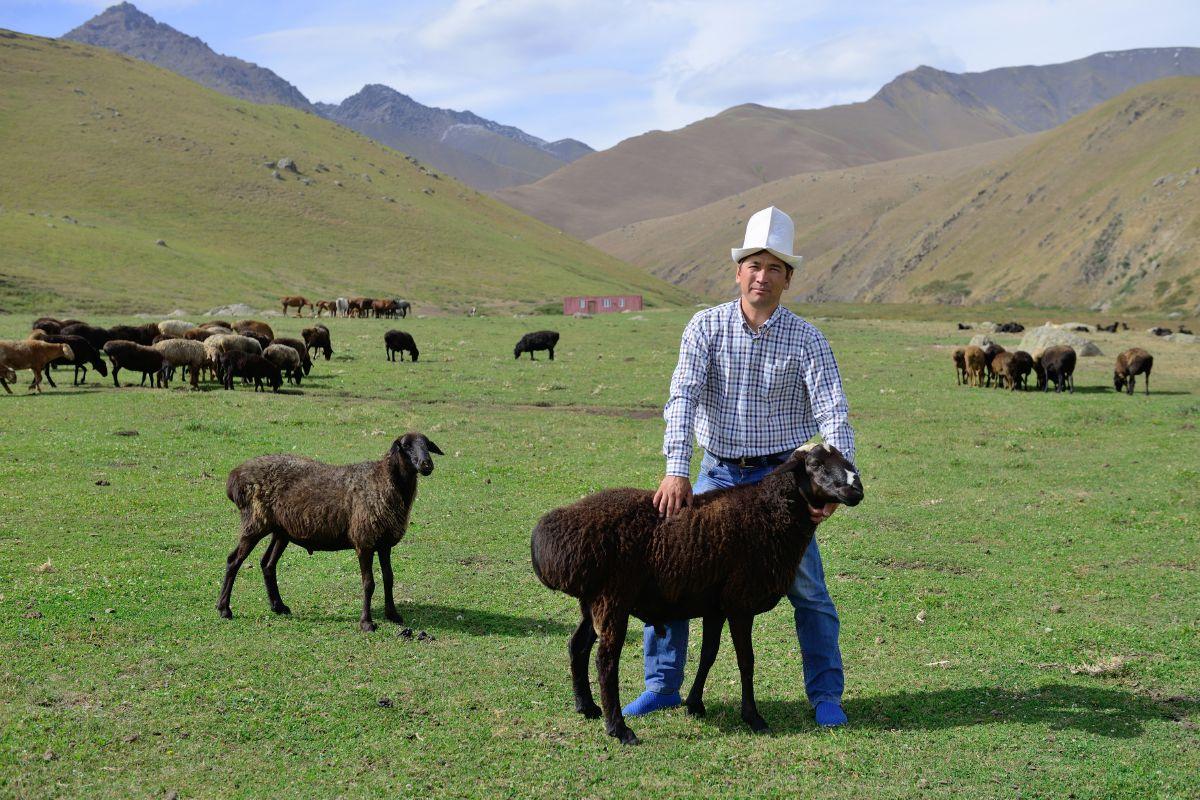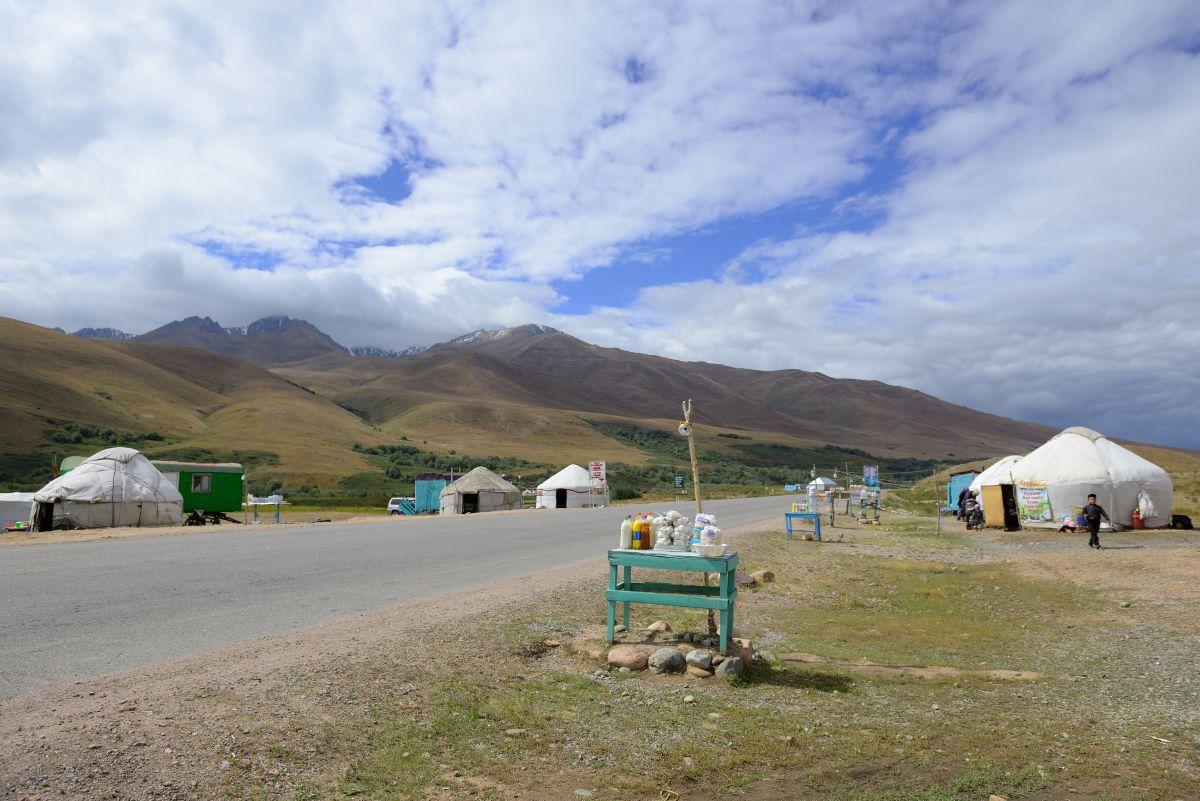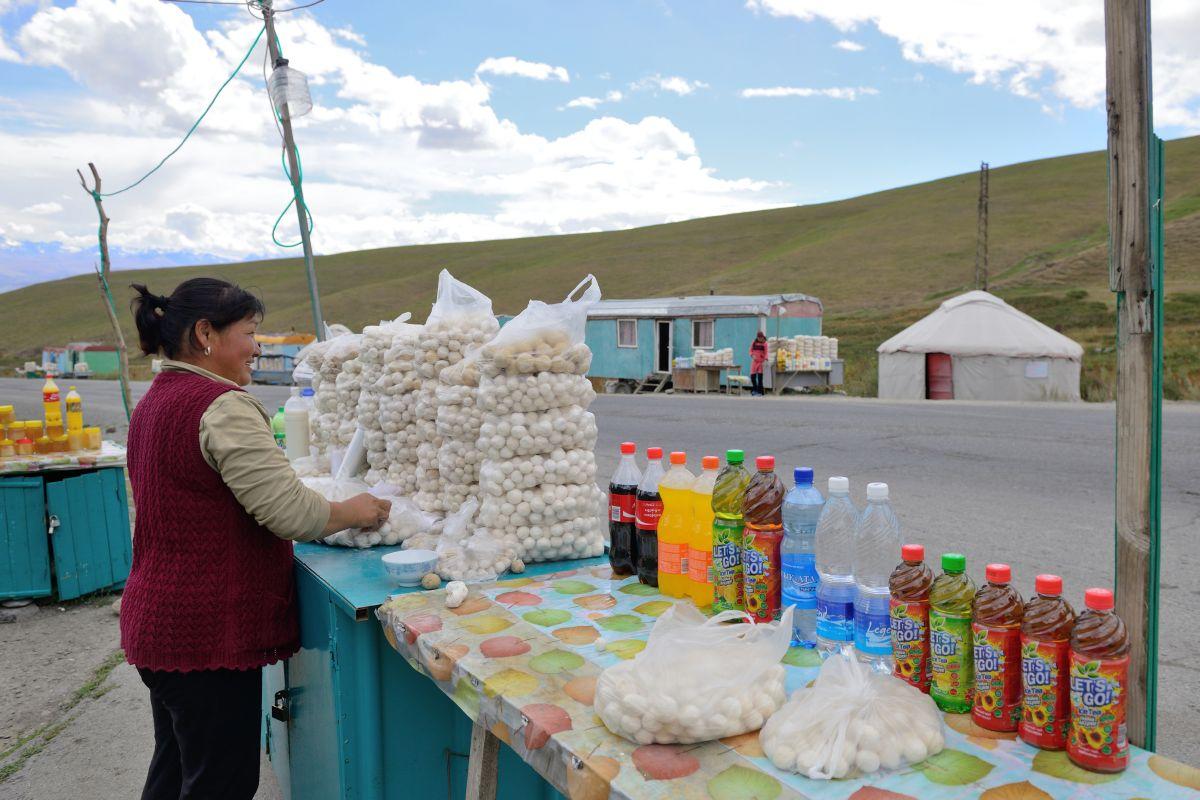International funding: 'The prospects are promising'
#International focus
Foto: Benjamin Goetzinger via Wikimedia Commons CC BY-SA 4.0 http://creativecommons.org/licenses/by-sa/4.0/
Yurt camp on the northern shore of Lake Son Kol, Kyrgyzstan
The last projects in the Foundation's funding initiative 'Central Asia/Caucasus' will soon come to an end. Other research funders, including the German Federal Ministry of Education and Research, will follow up in the region – and the Foundation will be continuing its international funding activities with new topics. A discussion about the complementarity of private and public funding of projects that take place abroad.
The funding initiative 'Between Europe and the Orient – A Focus on Research and Higher Education in/on Central Asia and the Caucasus' (CAC) is one of the record-breaking all-time favourites in the Foundation's funding portfolio. Under this heading, it was possible to apply for project funding from 1999 until the end of 2021. The last approved projects will run until 2025/2026.
To coincide with the 25th anniversary of the project, in June 2024, recipients of funding from the region met with their German project partners in Hanover for a final symposium held with representatives of other funding organisations and policy makers. It was important for everyone not just to take a nostalgic look back over the many past achievements. The question that interested everyone the most was: What would be the future of research funding in Central Asia and the Caucasus region?
Answers to these questions can be found in the discussion with Matthias Nöllenburg, the programme administrator at the Foundation, with Florian Frank, Head of Unit at the Federal Ministry of Education and Research with responsibility for countries of the South Caucasus and Central Asia, among others, and with Adelheid Wessler, Head of the 'Societal Transformations' profile funding area at the Volkswagen Foundation.
Now it is a question of building on what has already been achieved. The prospects are promising.
Dr Nöllenburg, we shouldn't read too much into the fact that you retired just a few days after the CAC closing symposium, should we? You led the initiative at the Foundation for around a quarter of a century. Are the funding lights now going out in the region?
Nöllenburg: The symposium, the meeting with many of the grantees, reminiscing together, taking stock of what we have achieved – all of this was of course a wonderful finale for me. But the end of my active career does not, of course, mean the end of international funding activities at the Foundation! We will talk more about what's to follow. What pleased me in particular was to see that other players, first and foremost the Ministry of Education and Research, want to continue where the Foundation left off after so many years of funding.
Frank: My Ministry and the Volkswagen Foundation have been working in partnership in the region for years. We have learnt much about the Foundation's positive contribution to development in the region, not least during delegation visits. This also became clear at the symposium. Now it is a question of building on what has already been achieved. The prospects are promising.
What is the ministry actually going to do?
Frank: In my ministerial area of responsibility, it's mainly about opening doors, creating contacts abroad, getting people to know each other and coming up with joint ideas for projects. For the Central Asia region, CASIB (Central Asia Sustainable Innovation Bureau) supports us with networking in Almaty in Kazakhstan...
Nöllenburg: Incidentally, the head of CASIB is a grantee of the CAC programme...
Frank: Our funding calls are created in reflection of both research needs a well as political priorities. Our current calls for funding are mostly embedded in the framework call 'Eastern Partnership and Central Asia'. This largely open call for proposals was launched in October 2023 and will consolidate existing research collaborations between Germany and the region over a period of ten years. Above all, it aims at initiating new ones. The focus is on tackling the major societal and global challenges.
Nöllenburg: The CAC programme was also thematically open when it started. From the outset, the programme focused equally on the natural and engineering sciences as well as the humanities and social sciences. After the collapse of the Soviet Union ten years earlier, research in the region came to a standstill, especially in the social sciences – there's no other way to put it. But research interest on the German side was also meagre. Then in 2010, an international evaluation panel recommended that we use half of the funding budget for thematic calls for proposals. And that's what we did, focussing on topics from the environmental and social sciences. We also added a series of structured doctoral programmes to contribute to the reform of academic education in the region. National sponsors also participated in these programmes.
Picture gallery
Insights into a CAC project on the increasing dangers of extreme weather conditions for herders in Kyrgyzstan and Mongolia.
Wessler: I would like to add that the evaluation also recommended postdoctoral funding. That was a good idea. This enabled us to build up careers and structures and invest in the brightest minds.
Frank: As a public funder, we are guided by three main principles when funding research abroad: Excellence, innovation, and responsibility. This triad can be thought of in two ways. One describes what research in Germany is interested in. The other describes what research and people in the region want and what benefits them. Keyword climate change: anyone travelling to Kazakhstan can already see the effects of climate change there, which are increasingly affecting us in Europe: regular severe flooding and droughts. With our research funding, we are helping the people in the region to cope better with these challenges, while at the same time we are gaining scientifically sound expertise that will help us to make Germany more resilient to crises.
Unlike the Volkswagen Foundation, which is private and independent, the ministry has to justify why it spends taxpayers' money on international funding. And the programmes must fit into the political framework set by the Federal Government.
Frank: That's right. One basis for this is the Strategic Regional Partnership between Germany and the five countries of Central Asia. This was agreed by the German Chancellor and the heads of government of Kazakhstan, Kyrgyzstan, Tajikistan, Turkmenistan and Uzbekistan at a meeting in Berlin in September 2023.
What goals is Germany pursuing with this partnership?
Frank: The Central Asian countries find themselves in a difficult geopolitical situation between Russia and China. We want to help bring the region closer to the European Research Area. And at the meeting in Berlin, it once again became clear there is still much to be done in the area of interregional cooperation. Although the countries in the region show great interested in cooperating with Germany, they pay little attention to what actually connects them as a group.
Global research needs globally minded sponsors.
Nöllenburg: We also noticed the lack of motivation to enter into collaborations with each other at CAC. We took countermeasures early on and made it a condition that at least two countries from the region should be involved in joint research projects – in addition to the partner institution in Germany, of course. This worked well and brought together institutions that had previously had nothing to do with each other.
What specific roadmap are you pursuing at the ministry to initiate German-Central Asian projects?
Frank: First of all, we were surprised by the tremendous response to the 'Eastern Partnership and Central Asia' framework call. Kazakhstan and Uzbekistan are the favoured partners in Central Asia for German research institutes. For the promotion of sustainable solutions, the thematic area of environment and climate accounts for 52 per cent of the project outlines, with energy efficiency, biodiversity and climate change also receiving attention. Kazakhstan is in the lead with 23 per cent of applications for funding, followed by Kyrgyzstan and Georgia with 15 per cent each and Uzbekistan with 14 per cent. Each project naturally includes partners in Germany.
Nöllenburg: I recognise some of the key topics that were recently recommended to the ministry for funding in a position paper ('Central Asia - meeting regional and global challenges'). It was drawn up by research, intermediary and funding organisations as part of a strategic workshop in spring 2023. The Volkswagen Foundation also contributed its expertise.
Frank: The paper is an important point of reference, both in the political dialogue with our local partners and in the exchange with German research. We promote the former, for example, in the context of a roundtable that we are currently preparing in cooperation with the five Central Asian states, and the latter in the context of a conference planned for the first quarter of 2025. I am confident that this will pave the way for further research funding. I, for one, am already looking forward to the next step.
And at the Volkswagen Foundation? What's next for international funding?
Wessler: We haven't yet mentioned that the Foundation not only provided regional funding in Central Asia/Caucasus for a very long time, but also in countries in the sub-Saharan region for almost as long. The Foundation has also ended this support. As part of our funding strategy, which we have been implementing since 2020, we have realigned the objectives of our international funding. In view of global challenges such as the aforementioned climate change, we are convinced that today's problems can only be tackled from an international perspective and through cross-border cooperation.
Is that why we are saying goodbye to regional funding?
Wessler: Yes, as a result of the massive changes in the global structure that research is faced with today. A good example of our newly shaped funding concept is the 'Global Issues' programme. As the name suggests, calls for proposals in this new priority area deal with global challenges. For example, new diseases that spread rapidly in the wake of increased modern mobility. Or the question of how to prevent and counter pandemics in the future. We launched 'Global Issues' in the 2010s, parallel to the phase-out of regional funding. The prerequisite for a successful application is to have partners from different countries and preferably from different continents. We want to enable transdisciplinarity and we want to involve more researchers from the Global South in the projects.
That sounds complex.
Wessler: That is partly the case. That's why we cooperate with other European foundations in all calls for proposals in the Global Issues programme. This not only contributes budgets but also expertise. Global research needs globally minded sponsors.
International cooperation is called for in a large number of the Foundation's initiatives and calls for proposals.
But the framework that is being set is a European-dominated one...
Wessler: Yes, most of the financial resources for research funding are in the global North. However, we are clearly endeavouring to ensure equitable research in the projects. We will find out how successful we are with this in November 2024. That's when funding recipients and funders will meet in Hanover for the Global Issues Convention. Similar to the CAC Symposium, we don't just want to look back at what has been, we want to look forward as well. Is there a need of funding in areas where private foundations can utilise their independence to initiate things that are then ideally scaled up by other players? I think CAC and the Ministry of Education and research have succeeded in creating this link. And of course, at the meeting in November, we will discuss how the network can perhaps be extended beyond the borders of Europe. Everyone is very motivated. I can't wait to see how it goes!
Nöllenburg: Anyone who takes a closer look at the Foundation's current funding portfolio will discover that international cooperation is called for in a large number of initiatives and calls for proposals, and is certainly highly recommended. When you asked me at the beginning whether the lights would go out in the Foundation's international funding programme with my departure, that was not only an ironic exaggeration of my importance. It also bears no relation to the facts. In my opinion, the Volkswagen Foundation is constantly adding new lights in its international funding activities. The motivation for this is explained very well in a position paper describing the Foundation's international funding activities (PDF, 357.7 KB). As someone who has been involved in this context for such a long time and is now retiring, this is very good news indeed.









